Actualités
JIU/REP/2019/6 Review of audit and oversight committees in the United Nations system
 The present report reviews audit and oversight committees, which are functions at the center of the governance mechanisms of United Nations system organizations with the potential to enhance transparency and accountability, and efficient and effective use of member States’ resources.
The present report reviews audit and oversight committees, which are functions at the center of the governance mechanisms of United Nations system organizations with the potential to enhance transparency and accountability, and efficient and effective use of member States’ resources.
Audit and oversight committees have a critical role to play as independent expert advisory bodies that provide objective advice and recommendations on various aspects of an organization’s governance, risk management, and internal control processes.
The analysis of the 18 audit and oversight committees of United Nations system organizations examined during this review revealed considerable progress over the last decade, with the scope, content, and quality of the terms of reference or charter of the committees having considerably improved. Notwithstanding this progress, the United Nations system still has some way to go to meet the thirteen criteria for good practices for audit and oversight committees identified by the JIU.
At present, audit and oversight committees have varying responsibilities, scope, composition, size, titles, reporting lines and degrees and levels of independence, although the Representatives of Internal Audit Services (RIAS) of the United Nations system organizations, multilateral financial institutions and other associated intergovernmental organizations introduced a common definition in 2008. When it comes to reporting arrangements, for example, the review found that of the 18 committees reviewed, seven report to the executive head only – which is not a good practice for independence. Other Committees either report directly to the governing body (five) or to both the governing body and the executive head of the organization (six). Other good practices highlighted by the JIU include the requirements for geographical and gender balance in the composition of the committees, along with detailed conflict-of-interest guidelines, provisions for revising their charter or terms of reference, and criteria for assessing the performance of audit and oversight committees.
The report contains seven recommendations directed at the legislative and/or governing bodies of the United Nations system organizations. They recommend measures to: • Strengthen independence and reporting lines of the audit and oversight committees; • Include, in the committees’ terms of reference or charter, (i) all internal oversight responsibilities (such as oversight of ethics and anti-fraud activities), (ii) provisions related to internal control framework and risk management, and (iii) provisions related to the relevant skills and professional expertise of members; • Undertake committees’ self-assessments and independent performance evaluations; • Include emerging priorities and new challenges by periodically revising and updating respective committees’ terms of reference or charters. To read the full story please click on the title of this story.
JIU/REP/2019/4 Review of change management in United Nations system organizations
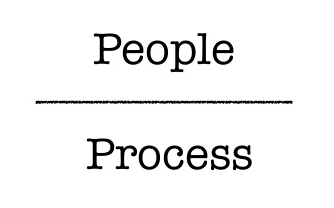 The present review is about change management in organizational reforms across the United Nations system. Close to 20 per cent of United Nations system organizational reforms over the past decade focused on what needed to change in terms of structures, systems, and processes, but did not address how it should change, and the management of that change, including: preparing, equipping and supporting individuals to successfully adopt that change in order to drive organizational success and outcomes. This focus on people in the change process is the essence of change management.
The present review is about change management in organizational reforms across the United Nations system. Close to 20 per cent of United Nations system organizational reforms over the past decade focused on what needed to change in terms of structures, systems, and processes, but did not address how it should change, and the management of that change, including: preparing, equipping and supporting individuals to successfully adopt that change in order to drive organizational success and outcomes. This focus on people in the change process is the essence of change management.
The present review highlights the significance of change management as a strategic priority worthy of consideration by governing bodies. It provides guidance to management on the critical elements of successful change management, and on how these can be applied in United Nations system organizations. The Inspectors made six recommendations to ensure that change management approaches and methods are embedded in current and future United Nations system organizational reforms. To read the report, please click on the title of this story.
JIU opened a high-level Conference on blockchain
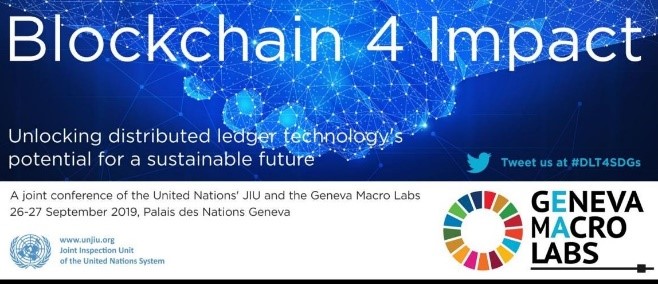 On 26 September 2019, Inspector Petru Dumitriu of the Joint Inspection Unit opened a Conference on the impact of blockchain on sustainable development co-organized with Macro Geneva Labs (https://gemlabs.webnode.com/), at the Palais des Nations. The opening session enjoyed the participation of Mr. Pierre Maudet, State Councillor of the Canton and City of Geneva, in charge of economy. The Conference was organized in a multistakeholder format and a partnership mode.
On 26 September 2019, Inspector Petru Dumitriu of the Joint Inspection Unit opened a Conference on the impact of blockchain on sustainable development co-organized with Macro Geneva Labs (https://gemlabs.webnode.com/), at the Palais des Nations. The opening session enjoyed the participation of Mr. Pierre Maudet, State Councillor of the Canton and City of Geneva, in charge of economy. The Conference was organized in a multistakeholder format and a partnership mode.
From the JIU perspective, the Conference is conceived as a follow-up to its report on the United Nations system – Private sector partnership arrangements in the context of the 2030 Agenda for Sustainable Development (JIU/REP/2017/8), namely recommendation 11 on partnerships for innovation. The main objective of the Conference was to offer to the United Nations organizations a learning session on how blockchain applications can help in supporting the 2030 Agenda for Sustainable Development.
Two-hundred and seventeen (217) participants represented United Nations organizations and other international organizations (WTO, IMF), members of the diplomatic corps and other representatives of governments, local authorities, the private sector, academia (including students), banks and banks’ associations, start-ups and non-governmental organizations. The key-speakers were high-level experts in the theory and practice of blockchain applications.
Joint Inspection Unit presents preliminary conclusions on learning in the United Nations system in a meeting on diplomatic training
 On 20 September 2019, Inspector Petru Dumitriu was invited as a panellist in the 46th Meeting of Deans and Directors of Diplomatic Academies and Institutes of International Relations. The meeting was organized by the Graduate Institute of International Studies, DiploFoundation, Geneva Centre for Security Policy, and UNITAR, under the auspices of the International Forum on Diplomatic Training.
On 20 September 2019, Inspector Petru Dumitriu was invited as a panellist in the 46th Meeting of Deans and Directors of Diplomatic Academies and Institutes of International Relations. The meeting was organized by the Graduate Institute of International Studies, DiploFoundation, Geneva Centre for Security Policy, and UNITAR, under the auspices of the International Forum on Diplomatic Training.
In the session on “Innovative learning: Methodologies for diplomats, policymakers, leaders, and decision makers”, Inspector Petru Dumitriu presented the institutional profile and work of the Joint Inspection Unit and shared some preliminary findings from his review on policies, programmes, and platforms in support of learning.
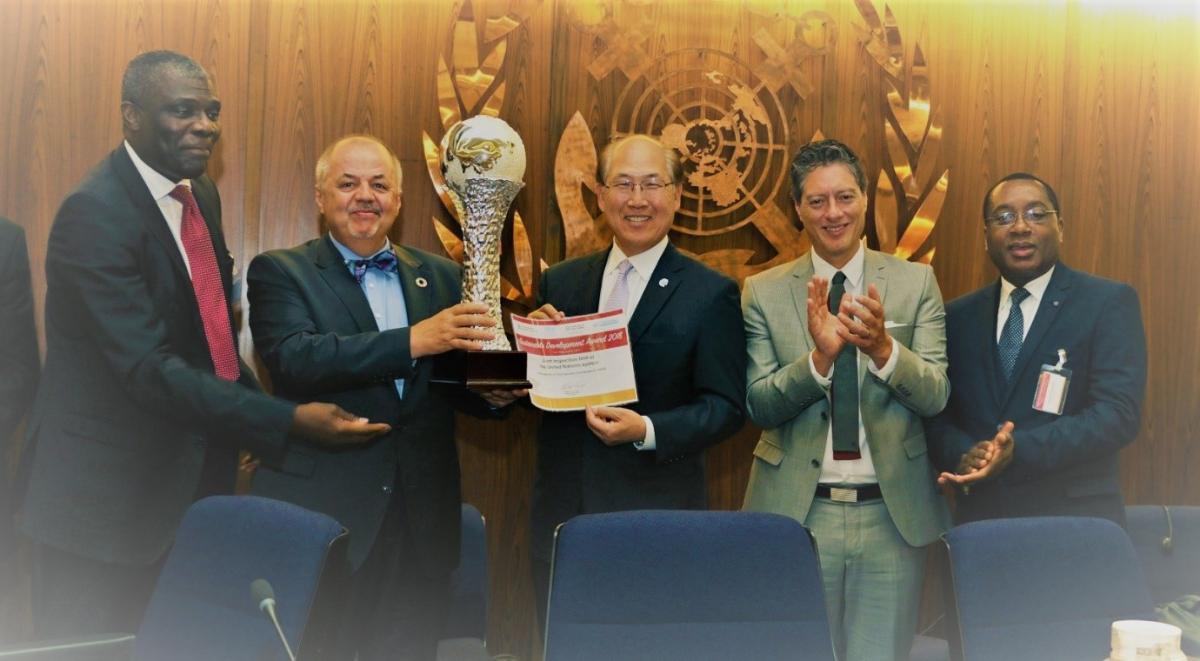 Joint Inspection Unit received the WASD Sustainable Development Award
Joint Inspection Unit received the WASD Sustainable Development Award
Following a decision of its International Advisory Board of the World Association for Sustainable Development (WASD), the Joint Inspection Unit of the United Nations system was conferred the Sustainable Development Award 2018. The Award ceremony took place on 17 June 2019, in London, on the occasion of the 17th International Conference of WASD.
At the opening of the ceremony, Allam Ahmed, president of the Association, stated that the Award was bestowed to JIU “for the promotion of Global Partnership, in particular with respect to the role the academic and research community and the private sector in the implementation of the Sustainable Development Goals”. The laudatio was pronounced by Geoff Thompson, Chair of Governors Board, Youth Forum, University of East London.
The Award was handled to Inspector Petru Dumitriu in his capacity as coordinator of JIU reviews on “The United Nations system –private sector partnership arrangements in context of the 2030 Agenda for Sustainable Development” and “Strengthening Policy Research Uptake in service of the 2030 Agenda”.
The Secretary-General of the International Maritime Organization, Kitack Lim, was presented at the ceremony. He expressed full support for the JIU recommendations contained in its report on the partnerships with the private sector in the context of “enhancing engagement with business [and] increasing coordination of innovation partnerships”.
JIU review of UN-SWAP first phase of implementation (2012-2017)
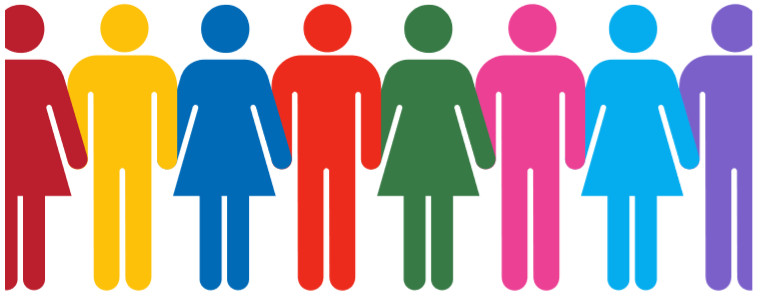 The System-wide Action Plan on Gender Equality and the Empowerment of Women (UN-SWAP) was designed as an accountability framework to measure, monitor and drive progress towards a common set of 15 performance indicators to achieve gender equality and the empowerment of women. It operationalizes the System-wide Policy on Gender Equality and the Empowerment of Women endorsed in 2006 by the United Nations Chief Executives Board (CEB). The progress achieved against the performance indicators through the implementation of the programme is considerable during the first phase of implementation (2012-2917).
The System-wide Action Plan on Gender Equality and the Empowerment of Women (UN-SWAP) was designed as an accountability framework to measure, monitor and drive progress towards a common set of 15 performance indicators to achieve gender equality and the empowerment of women. It operationalizes the System-wide Policy on Gender Equality and the Empowerment of Women endorsed in 2006 by the United Nations Chief Executives Board (CEB). The progress achieved against the performance indicators through the implementation of the programme is considerable during the first phase of implementation (2012-2917).
The assessment of the JIU’s inspectors is that UN-SWAP is a useful framework and a credible benchmark towards gender mainstreaming. Since UN-SWAP is based on self-assessment and self-reporting by participating entities, quality assurance mechanisms need to be effective and regularly reviewed by the 66 reporting entities. The endorsement of the action plan by the CEB provided system-wide leadership commitment to implement the policy and is a cornerstone of success for the programme. The responsibility of executive leaders to create an enabling environment is a key factor in ensuring the effective implementation of the plan and of gender-related components of corporate policies.
UN-SWAP provides a truly unique system-wide model for a well-elaborated framework of performance indicators for monitoring of progress on gender mainstreaming in a systematic and harmonized manner. However, the current system-wide reporting mechanism to the Economic and Social Council can be enhanced by presenting both aggregated and disaggregated figures for individual entities in order to increase accountability, and the role of governing bodies could be strengthened through increased attention to the annual letter addressed by UN-Women to the executive management of the reporting entities.
As per its mandate, UN-Women has been the lead agency for coordinating and facilitating the design, development and implementation of the programme. Existing inter-agency networks (evaluation, audit, strategic planning, human resources, etc.) have been leveraged to support the development and the implementation of the framework. UN-SWAP is seen as a system-wide achievement as most of the reporting entities had a hand in the development of the framework and its implementation. The elements of an accountability framework are present both system-wide and at the level of individual organizations. The Inspectors invite the United Nations General Assembly to endorse the five formal recommendations included in the report as a means of furthering the effective implementation of the United Nations System-wide Action Plan on Gender Equality and the Empowerment of Women and strengthening the accountability of the United Nations system with regard to gender mainstreaming, gender equality and the empowerment of women.
Note: the image was taken for the UNSWAP Technical guidelines document issued by UN-Women.
The Joint Inspection Unit pilots a research partnership with young researchers from the Graduate Institute for International and Development Studies
 In its report on “Strengthening policy research uptake in the context of the 2030 Agenda for Sustainable Development”, the Joint Inspection Unit encouraged United Nations organizations to establish research partnerships with academia. The JIU is delighted to have the opportunity itself to engage master students from the Graduate Institute for International and Development Studies in a research programme. This is a first for the JIU.
In its report on “Strengthening policy research uptake in the context of the 2030 Agenda for Sustainable Development”, the Joint Inspection Unit encouraged United Nations organizations to establish research partnerships with academia. The JIU is delighted to have the opportunity itself to engage master students from the Graduate Institute for International and Development Studies in a research programme. This is a first for the JIU.
The topic of the research is “The use of blockchain applications in the implementation of the 2030 Agenda: a critical (SWOT) analysis” and it will be conducted under the framework of the Capstone Research projects, which are part of the Masters curricula and carry 9 ECTS (European Credit Transfer and Accumulation System).
The research objectives are, inter alia, to: i) undertake a SWOT (strengths /weaknesses /opportunities /threats) analysis of blockchain from a theoretical perspective; ii) identify lessons learned and challenges related to the use of blockchain applications in the field; iii) identify and take stock of the current uses of blockchain applications by United Nations system organizations; and iv) find the existence of standards and normative frameworks related to blockchain technologies.
The master students allocated to this project, Loriane Kohler, Atma Dinnie Charles, Akiko Yamamoto and Ryan Kimmitt, originate from Switzerland, South Africa, Japan, and United States. The academic supervisor is Filipe Calvão, Ph.D., Assistant Professor, Anthropology and Sociology. The coordinator of the Capstone Research programme is Simon Lobach, teaching assistant. The coordinator of the project from JIU is Inspector Petru Dumitriu.
The results of the research will be useful to the JIU as preliminary documentation for the consideration of review topics for its programme of work.
 The 2030 Agenda for Sustainable Development, with its universal, holistic and integrative approach that cuts across all dimensions of sustainable development, makes collaborative actions and interdisciplinary approaches at the system-wide level, as well as relationships with other stakeholders, imperative. Achieving the Sustainable Development Goals requires, among other things, evidence-based policies and planning at all levels. Adequate research uptake is essential in order to comprehend the dynamic trends in economic, social and environmental developments and to anticipate and prevent emerging challenges by channelling and supporting critical thinking in policy debates.
The 2030 Agenda for Sustainable Development, with its universal, holistic and integrative approach that cuts across all dimensions of sustainable development, makes collaborative actions and interdisciplinary approaches at the system-wide level, as well as relationships with other stakeholders, imperative. Achieving the Sustainable Development Goals requires, among other things, evidence-based policies and planning at all levels. Adequate research uptake is essential in order to comprehend the dynamic trends in economic, social and environmental developments and to anticipate and prevent emerging challenges by channelling and supporting critical thinking in policy debates.
The Joint Inspection Unit conducted the first ever review of the policy research function in the United Nations system with the aim to raise awareness on the importance of this function in support of a transformative agenda for sustainable development. The review intends to acknowledge the role of research as a unique asset of the United Nations system, elevate its visibility, and find ways to make its production and uptake more efficient and transparent. It argues for the need to better hear the voices of researchers in decision-making. More importantly, the implementation of the recommendations contained in the report may lead to the strengthening of the role of the United Nations system as a creator, catalyst, and distributor of trusted, objective, and reliable research.
The report presents 12 recommendations, addressed to the General Assembly, to the Economic and Social Council, to the governing bodies of the United Nations system organizations, the Secretary-General of the United Nations, the Director General of the United Nations Educational, Scientific and Cultural Organization and to the Executive Heads of other United Nations system organizations.
 On March 11 2019, the JIU Chair Inspector Sukai Prom-Jackson introduced the annual report of the Unit (A/73/34) to the members of the Fifth Committee. Every year the Unit has the opportunity to present to Member States an account of its activities for the past year and an outline of its programme of work for the year to come. Inspector Prom-Jackson outlined the unique comparative advantage of the Unit to conduct its system-wide mandate for inspection, evaluation, and investigation. She stressed the efforts of the Unit to more systematically align its work with United Nations system-wide priorities addressing the 2030 Agenda for Sustainable Development and the ongoing reforms.
On March 11 2019, the JIU Chair Inspector Sukai Prom-Jackson introduced the annual report of the Unit (A/73/34) to the members of the Fifth Committee. Every year the Unit has the opportunity to present to Member States an account of its activities for the past year and an outline of its programme of work for the year to come. Inspector Prom-Jackson outlined the unique comparative advantage of the Unit to conduct its system-wide mandate for inspection, evaluation, and investigation. She stressed the efforts of the Unit to more systematically align its work with United Nations system-wide priorities addressing the 2030 Agenda for Sustainable Development and the ongoing reforms.
The discussions at the Fifth Committee saw a broad range of questions put forward by the representatives of Member States. Statements were made by the Observer State of Palestine (on behalf of the Group of 77 and China) and the representatives of the United States, the Republic of Moldova and the Russian Federation. In addition to the references made to the reports released in 2018 such as the review of whistleblower policies, the review of policy research uptake and on South-South Cooperation; common themes of interest included the follow-up and implementation of JIU recommendations by the participating organizations and the elaboration of the Strategic Framework of the Unit (2020-2029).
>> Click here to access the Annual report in English (the Annual Report is also available in the other official UN languages on the respective versions of the JIU website).
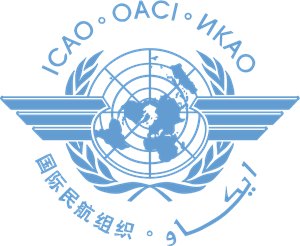 The “Review of Management and Administration in the International Civil Aviation Organization (ICAO)” was included in the JIU Programme of Work for 2018. The objective of the JIU review was to provide an independent assessment focusing on governance, oversight, organizational structure, executive, financial, human resources and results based management and support services. It served as a follow-up to the previous JIU report (JIU/REP/2007/5), which the Council of ICAO considered at its 182nd session in 2007. Some of the findings of that report are still valid and were taken into account as appropriate.
The “Review of Management and Administration in the International Civil Aviation Organization (ICAO)” was included in the JIU Programme of Work for 2018. The objective of the JIU review was to provide an independent assessment focusing on governance, oversight, organizational structure, executive, financial, human resources and results based management and support services. It served as a follow-up to the previous JIU report (JIU/REP/2007/5), which the Council of ICAO considered at its 182nd session in 2007. Some of the findings of that report are still valid and were taken into account as appropriate.
The JIU report contains five recommendations, of which one is addressed to the Assembly, two to the Council and two to the Secretary General, as well as 22 informal recommendations for further improving management and administration practices at ICAO. The report highlighted the need to review the governance arrangements and related standing practices at ICAO.
The Assembly is invited to establish at its 40th session a Panel of eminent persons to review the governance structure of the ICAO and its capacity for more effective, accountable and transparent decision-making, including, inter alia, the delineation and allocation of responsibilities between the Council and the Secretariat as well as the President of the Council and the Secretary General, the triennial cycle of the Assembly and budget of the organization (recommendation 1).
ICAO made progress in strengthening the organization’s oversight structure. The ICAO Framework on Ethics, including the investigation function, was under review at the time of the preparation of the JIU report. The Council should ensure when reviewing and updating in 2019 the ICAO Framework on Ethics that the chief investigator prepares an annual report to the Council and has access to the EAAC to raise, as necessary, any issues related to the work of the investigation function (recommendation 2). The advisory and oversight mandate of the EAAC should extend to all oversight matters, including those pertaining to the investigations and ethics functions (recommendation 3). Progress has been made in strengthening the organization’s assurance and internal control framework and risk management process. Still, further measures are needed. It is suggested that a senior manager should be designated as chief risk officer. The Secretary General should conduct by the end of 2020 a comprehensive risk assessment in ICAO (recommendation 4). ICAO faces a number of human resources management challenges in terms of composition of its work force, equitable geographical representation, gender equality, succession planning and knowledge retention. While the organization has made progress in addressing those challenges, it is missing a strategic and holistic approach. ICAO should therefore develop and adopt a comprehensive human resources management strategy (recommendation 5).
 About 15 per cent of the world’s population is estimated to live with some form of disability, and face more barriers than those without, with regard to participation in and access to deliberative processes. Making conferences and meetings fully accessible therefore becomes a critical indicator of the willingness of United Nations system organizations to “walk the talk” when it comes to non-discrimination and inclusion. The review focuses on assessing the current status of accessibility for persons with disabilities to United Nations system conferences and meetings.
About 15 per cent of the world’s population is estimated to live with some form of disability, and face more barriers than those without, with regard to participation in and access to deliberative processes. Making conferences and meetings fully accessible therefore becomes a critical indicator of the willingness of United Nations system organizations to “walk the talk” when it comes to non-discrimination and inclusion. The review focuses on assessing the current status of accessibility for persons with disabilities to United Nations system conferences and meetings.
The review directs nine recommendations to the executive heads of United Nations system organizations that include: developing comprehensive policy and guidelines on accessibility; ensuring that accessibility requirements are included in agreements with hosting entities for off-site events; appointing a focal point on accessibility; developing standard operating procedures on operational responsibilities of relevant actors on accessibility-related matters; ensuring accessible registration processes, providing accessibility related information pre-conference and conducting post-conference satisfaction surveys on accessibility; providing remote participation options for all events; undertaking periodic accessibility assessments of facilities and services with the full engagement of persons with disabilities; incorporating accessibility checks and/or requirements in procurement policies and guidelines; and developing and implementing a system-wide mandatory specialized training module on disability inclusion and accessibility for relevant personnel. It further recommends that legislative bodies include in their agendas the review of periodic reports on the state of accessibility of conferences and meetings for persons with disabilities. Click on the title to access the report. UN Photo by Eskinder Debebes.

JIU review of management and administration in UNOPS presented to UNDP/UNFPA/UNOPS Executive Board
Executive Board discussed the JIU review of management and administration in the United Nations Office for Project Services and UNOPS commitment to follow up on the recommendations as a source for improvement. Inspector Gönke Roscher introduced the recent JIU review of management and administration in the United Nations Office for Project Services (UNOPS) during the UNOG segment of the meeting of the joint UNDP/UNFPA/UNOPS Executive Board on 5 September 2018 in New York.
The UNOPS Executive Director, Ms. Grete Faremo, in her statement emphasized the role of UNOPS in the broader context of the reform of the UN development system and the continuous growth of UNOPS activities. She also welcomed the JIU review, in particular the findings regarding the success of UNOPS business model. She announced that UNOPS would report back to the Board on the implementation of the JIU recommendations.
In her statement Inspector Roscher noted that, during the review, the JIU paid special attention to the distinctive features of UNOPS, in particular its self-financing nature and its mandate for delivery of services to its partners within and outside the United Nations system. The Inspector thanked the organization for its transparency and cooperation in the review process. She underlined that, with regard to similar reviews, the findings were generally positive, a fact, which was also reflected in the comparatively low number of formal recommendations.
The review identified a few areas in which action is considered necessary to improve the efficiency and effectiveness of the organization and to strengthen integrity and accountability. To this end, three formal recommendations were made, two of which were addressed to member States through the Executive Board, and one to the Executive Director.
Therefore, the JIU recommended to the Board to adopt revised terms of reference for the Audit Advisory Committee aligned with good practices and established standards and to revisit the contingency provisions under the UNOPS budget at regular intervals. With regard to the recommendation on the strengthening of the ethics function, JIU welcomed the intention of UNOPS executive management to implement this recommendation and, as a first step, recruit an Ethics Officer at senior staff level in 2018.
Eight members of the Board participated in the following debate and referred to the JIU review and its recommendations and the commitment of UNOPS management to follow up on the recommendations as a source for improvement. One member suggested to have a more substantial discussion of the review at the first annual session of the Board in January 2019. The Board in a decision took note of the JIU review and UNOPS management response.
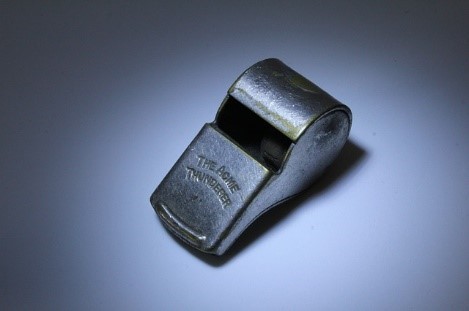 Whistle-blowing and protection against retaliation (PAR) policies and practices are essential components of organizational accountability and integrity. This topic has taken on increasing importance in recent years given several high profile cases of whistle-blowers from United Nations system organizations who have gone public for a variety of reasons. This review focuses on assessing the effectiveness of policies, processes and procedures associated with PAR and its implementation across 28 United Nations system organizations and makes nine recommendations directed to the executive heads of United Nations system organizations for implementation.
Whistle-blowing and protection against retaliation (PAR) policies and practices are essential components of organizational accountability and integrity. This topic has taken on increasing importance in recent years given several high profile cases of whistle-blowers from United Nations system organizations who have gone public for a variety of reasons. This review focuses on assessing the effectiveness of policies, processes and procedures associated with PAR and its implementation across 28 United Nations system organizations and makes nine recommendations directed to the executive heads of United Nations system organizations for implementation.
Recommendations include revising PAR policies in line with best practices; reviewing the independence of relevant staff functions; creating clear reporting channels for misconduct/wrongdoing and for appeals mechanisms, improving communication and outreach strategies, and strengthening Standard Operating Procedures (SOPs) for handling misconduct/wrong-doing cases to proactively prevent retaliation; and creating separate SOPs for handling retaliation cases. Additionally, executive heads are called on to provide targeted training for managers on how to handle misconduct and retaliation allegations, as well as to regularly conduct global surveys to gauge staff feedback on ethics-related topics.
Two recommendations are addressed to legislative bodies, who are called on to ensure that policies and procedures are in place by 2020 to specifically address allegations against executive heads, that functions with a key role in misconduct/wrongdoing and retaliation cases are appropriately independent, and that they report regularly on their activities to the legislative body.
 The Joint Inspection Unit has recently completed a review of the United Nations Office for Project Services (UNOPS). UNOPS is a unique entity among the United Nations system organizations acting as the operational arm of the United Nations supporting the implementation of its partners’ peace building, humanitarian and development projects around the world with an annual portfolio of around a thousand projects, a total project delivery of 1.45 billion USD in 2016 and a workforce of around 4,000. The review confirms the specific culture of the organization with a high degree of flexibility and a strong business orientation while at the same time striving to add value to its partners’ activities. The report examines the efficiency and effectiveness of UNOPS policies and procedures in the management and administration of the organization while recognizing the unique features of UNOPS, in particular its self-financing nature and no mandate other than the delivery of services to partners inside and outside the United Nations system. The Inspector makes three formal recommendations: two are addressed to the Executive Director and one to the UNDP/UNFPA/UNOPS Executive Board which are expected to strengthen integrity and accountability as well as efficiency and coherence.
The Joint Inspection Unit has recently completed a review of the United Nations Office for Project Services (UNOPS). UNOPS is a unique entity among the United Nations system organizations acting as the operational arm of the United Nations supporting the implementation of its partners’ peace building, humanitarian and development projects around the world with an annual portfolio of around a thousand projects, a total project delivery of 1.45 billion USD in 2016 and a workforce of around 4,000. The review confirms the specific culture of the organization with a high degree of flexibility and a strong business orientation while at the same time striving to add value to its partners’ activities. The report examines the efficiency and effectiveness of UNOPS policies and procedures in the management and administration of the organization while recognizing the unique features of UNOPS, in particular its self-financing nature and no mandate other than the delivery of services to partners inside and outside the United Nations system. The Inspector makes three formal recommendations: two are addressed to the Executive Director and one to the UNDP/UNFPA/UNOPS Executive Board which are expected to strengthen integrity and accountability as well as efficiency and coherence.
Created in 1973 and made a separate and identifiable entity of the United Nations in 1995, UNOPS has over the course of years successively realigned its internal structures and business approaches to the changing environment and the needs of its partners, notably for the implementation of the 2030 Agenda for Sustainable Development. Against this background, UNOPS introduced in 2016 a major management reform programme, which led, among other things, to the adoption of a new organizational structure and a new legislative framework.
The review of UNOPS oversight functions identified a well-established and comprehensive oversight framework in place. The findings, however, indicated the need to fully align the terms of reference of its Audit Advisory Committee to the requirements of leading practices and good governance, particularly with regard to mandate, independence and membership of this important committee. Ethical standards and integrity are crucial elements of the United Nations accountability framework. When reviewing the resources and activities of the UNOPS ethics office, some shortcomings were identified. A second recommendation therefore calls for measures to strengthen the UNOPS ethics function, in particular through the establishment of a full-time staff position at senior level and additional financial resources.
The UNOPS operational reserve was established in 1997 to protect the organization and its partners against risks associated with project delivery. UNOPS has experienced a strong growth of its portfolio and in total project delivery in recent years, resulting in an increasing annual net surplus. As a result, the volume of its operational reserve has grown accordingly and stands far above the required minimum. Noting the work in progress, the review recommends to revisit the status of the operational reserve and for it to be discussed by the Executive Board at regular intervals.
In the full report, the reader will find a series of supplementary informal recommendations aimed, as are the finding of the review, to support member States and UNOPS executive management in their decision-making on improving the organizational framework and related practices. The Inspector will introduce the report at the joint UNDP/UNFPA/UNOPS Executive Board second regular session on 4 to 7 September 2018, during the UNOPS dedicated segment.
 The Joint Inspection Unit at the opening of the Vienna workshop on knowledge management
The Joint Inspection Unit at the opening of the Vienna workshop on knowledge management
On 21 March 2018, Inspector Petru Dumitriu, coordinator of the JIU report on Knowledge Management in the United Nations system (JIU/REP/2016/10) made a key-note intervention, by skype, at the opening of the workshop organized by the Knowledge for Development Partnership in Vienna. The workshop focussed on knowledge management (KM) in international organisations, with the participation of Vienna-based international organisations and representatives of the diplomatic corps. Inspector Petru Dumitriu presented the main conclusions that resulted from the JIU report, the lesson learned and the importance of knowledge as an asset of the United Nations in the context of the 2030 Agenda for Sustainable Development. Knowledge for Development Partnership is a public-private initiative that was launched on the occasion of the Knowledge for Development: Global Partnership Conference co-hosted by JIU in Geneva (3-4 April 2017).
Inspector Prom Jackson at Workshop for Member States on the Revised UNICEF Evaluation Policy
Inspector Sukai Prom-Jackson was invited by the UNICEF Evaluation Office (NY) to a Workshop for Member States on the Revised UNICEF Evaluation Policy. As a member of an expert panel including Susanne Frueh, Chair of UNEG and Director of UNECSO Internal Oversight Service and Deborah Rugg, Executive Director of Claremont Evaluation Center New York. Inspector Prom Jackson presented on Creating a dynamic, responsive and responsible evaluation system through a forward looking evaluation policy. Her presentation drew on JIU studies and reports of the past 5 years including the analysis of the evaluation function in the UN system, lessons from the implementation of the GA policy on Independent System-wide evaluation of operational activities for development, results-based management in the UN system. The findings from these reports highlight current changes and challenges and implications for transformations needed in the evaluation function of the UN System to enhance its relevance, efficiency, effectiveness, impact and sustainability and its value for the 2030 Agenda.
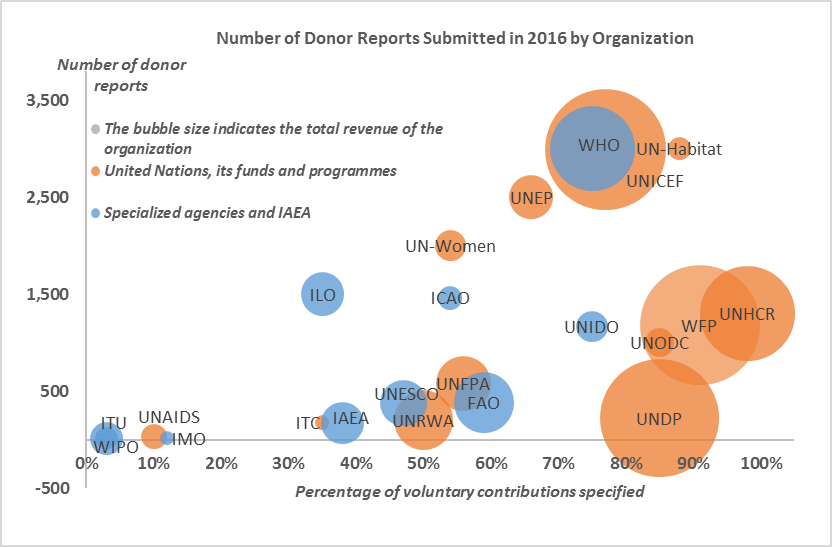 L'augmentation des contributions volontaires de la part des pays donateurs, dont la plupart sont pré-affectées, a été significative au cours des deux dernières décennies. Dans le système des Nations Unies, ces contributions représentaient environ 70% des recettes totales en 2015. La plupart des donateurs exigent des rapports individuels détaillés, financiers et programmatiques sur les activités entreprises en utilisant leurs contributions affectées. Cette obligation de rapport s'ajoute à celles des organisations à leurs organes directeurs. Les bailleurs de fonds stipulent des exigences spécifiques qui varient considérablement en termes de format, de détail et de périodicité, ce qui se traduit par une augmentation significative des rapports préparés spécifiquement pour des donateurs individuels. Le nombre de rapports sur une base annuelle se chiffre souvent en centaines et même en milliers pour de nombreuses organisations. En outre, on observe une augmentation du nombre de rapports informels (« soft » reporting), car de nombreux donateurs demandent des informations supplémentaires, des documents justificatifs, des notes d'information, des mises à jour par courrier électronique ou des visites sur le terrain. Fournir une multitude de rapports spécifiques et individuels, et maintenir tous les mécanismes nécessaires à la production de ces rapports produisent des coûts de transaction supplémentaires.
L'augmentation des contributions volontaires de la part des pays donateurs, dont la plupart sont pré-affectées, a été significative au cours des deux dernières décennies. Dans le système des Nations Unies, ces contributions représentaient environ 70% des recettes totales en 2015. La plupart des donateurs exigent des rapports individuels détaillés, financiers et programmatiques sur les activités entreprises en utilisant leurs contributions affectées. Cette obligation de rapport s'ajoute à celles des organisations à leurs organes directeurs. Les bailleurs de fonds stipulent des exigences spécifiques qui varient considérablement en termes de format, de détail et de périodicité, ce qui se traduit par une augmentation significative des rapports préparés spécifiquement pour des donateurs individuels. Le nombre de rapports sur une base annuelle se chiffre souvent en centaines et même en milliers pour de nombreuses organisations. En outre, on observe une augmentation du nombre de rapports informels (« soft » reporting), car de nombreux donateurs demandent des informations supplémentaires, des documents justificatifs, des notes d'information, des mises à jour par courrier électronique ou des visites sur le terrain. Fournir une multitude de rapports spécifiques et individuels, et maintenir tous les mécanismes nécessaires à la production de ces rapports produisent des coûts de transaction supplémentaires.
Le rapport du CCI identifie les options afin de mieux répondre aux besoins et aux exigences des donateurs et de renforcer la réputation du système des Nations Unies en tant que partenaire réactif et respecté. Il explore les possibilités d’harmonisation et de rationalisation, y compris en considérant un format de rapport commun. Le rapport contient sept recommandations formelles, dont deux s'adressent aux organes directeurs des organisations et cinq aux chefs de secrétariat. Il comprend également 15 recommandations informelles (soft) en tant que suggestions supplémentaires faites à la fois aux organisations et aux donateurs afin d’améliorer la situation.
Le rapport recommande, entre autres, que les organisations engagent un dialogue avec les donateurs au niveau stratégique, conformément à la proposition du Secrétaire général relative à un "Pacte de financement". Dans l'esprit de ce partenariat, les points de vue des organisations et des donateurs devraient être pris en compte, notamment les attentes des donateurs en matière d'efficacité, de transparence et de responsabilité sur les résultats à l'échelle du système. L'un des éléments essentiels du dialogue devrait être l'adoption de modèles de rapports pour les donateurs et la prise en compte des besoins, des exigences et des besoins communs des donateurs ainsi que des cadres réglementaires et des capacités des organisations. Pendant la négociation des contributions individuelles, les organisations et les donateurs devraient s'entendre dès le départ sur les besoins et les demandes, leur faisabilité et les implications en termes de ressources, y compris pour les demandes ponctuelles d'informations. Tous les bureaux concernés, notamment les services financiers et juridiques, devraient être consultés en temps opportun afin de garantir le respect des règles. Une orientation et une formation appropriées sur les éléments à tenir en compte pour établir les rapports pour les donateurs, périodiquement mises à jour en fonction des besoins changeants de ceux-ci, favoriseront le respect des règles et dispositions de l'organisation et assureront l'uniformité des conditions de notification acceptées et donc la cohérence des rapports. Les chefs de secrétariat devraient encourager un meilleur accès à l'information concernant les rapports des donateurs ainsi que la diffusion de cette information, et maintenir un répertoire général pour tous les accords de contribution et les rapports aux donateurs. Il est suggéré de définir un seuil minimum pour les contributions au-dessous duquel seuls des rapports standards seraient fournis, ainsi que des méthodes de calcul des coûts de préparation des rapports. Les organisations devraient également veiller à ce que leurs politiques de gestion des contributions volontaires soient adéquates, qu'elles disposent de systèmes de gestion de projet solides et que leurs progiciels de gestion intégrée et autres systèmes de gestion de l'information possèdent les fonctionnalités nécessaires à ce genre d’opérations. Les risques liés à la production des rapports doivent être atténués et les processus d'assurance-qualité doivent être renforcés.
Les organisations devraient considérer les rapports présentés aux donateurs comme un outil efficace de mobilisation des ressources et mettre en place des mesures pour renforcer les partenariats afin que les rapports soient perçus comme un processus continu d'établissement de relations durables avec les partenaires. Des fonctions de contrôle efficaces et les rapports adéquats qui en découlent peuvent renforcer la confiance des donateurs et réduire leurs besoins d'assurance auprès des organisations au travers de rapports détaillés et spécifiques.
Bienvenue sur le nouveau site internet du Corps commun d'inspection
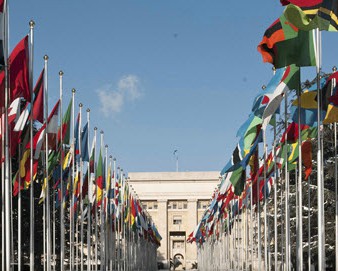 Bienvenue sur le nouveau site internet du Corps commun d'inspection du système des Nations Unies lancé en février 2018. Le site fournit à nos visiteurs des informations sur le Corps commun et sa contribution au système des Nations Unies et vous tient informé de la publication des rapports et notes produits par les Inspecteurs. Ce site comprend également des exemples de projets menés par le CCI, regroupés par thèmes tels que la gestion et l'administration, les ressources humaines, les achats, la gestion axée sur les résultats, le contrôle interne, etc. Ce site est publié en anglais et en français. Les autres versions linguistiques seront ajoutées très prochainement afin de maintenir l'accès à tous les produits du CCI dans les six langues officielles des Nations Unies. Vos commentaires sont les bienvenus sur le compte jiu@unog.ch
Bienvenue sur le nouveau site internet du Corps commun d'inspection du système des Nations Unies lancé en février 2018. Le site fournit à nos visiteurs des informations sur le Corps commun et sa contribution au système des Nations Unies et vous tient informé de la publication des rapports et notes produits par les Inspecteurs. Ce site comprend également des exemples de projets menés par le CCI, regroupés par thèmes tels que la gestion et l'administration, les ressources humaines, les achats, la gestion axée sur les résultats, le contrôle interne, etc. Ce site est publié en anglais et en français. Les autres versions linguistiques seront ajoutées très prochainement afin de maintenir l'accès à tous les produits du CCI dans les six langues officielles des Nations Unies. Vos commentaires sont les bienvenus sur le compte jiu@unog.ch
 Le Corps commun d’inspection du système des Nations Unies (CCI) a récemment publié un rapport sur les politiques de voyage aérien dans le système des Nations Unies qui a examiné et évalué les règlements, les politiques et les pratiques en matière de transport aérien, et a examiné leur mise en œuvre dans l'ensemble des organisations du système des Nations Unies. Le rapport a été entrepris à la suite d'appels lancés par l'Assemblée générale pour améliorer la gestion des voyages aériens et l'utilisation efficace et efficiente des ressources aériennes, et cela de façon prioritaire. Le rapport vise à accroître l'efficacité et l'efficience de la gestion des voyages parmi les organisations participantes du CCI, d'améliorer la responsabilité et la transparence pour les gestionnaires qui approuvent les voyages, d'augmenter la coordination et la coopération entre les organisations du système des Nations Unies et de promouvoir l'harmonisation des procédures et des processus, le cas échéant en identifiant les bonnes pratiques et leçons retenues. Le système des Nations Unies est l'un des plus grands consommateurs de services de transport aérien parmi les organisations internationales, en raison de la présence mondiale de ses bureaux et de ses programmes. Les dépenses de voyage sont l'une des composantes budgétaires les plus importantes, après les coûts de personnel et ont augmenté au cours de la dernière décennie, malgré les efforts visant à réduire les coûts et à utiliser davantage les outils technologiques tels que la vidéoconférence. Sur la base des données fournies par 24 organisations du système des Nations Unies, les dépenses globales consacrées aux frais de transport aérien et aux frais de déplacement ont totalisé environ 4 milliards de dollars pour la période de quatre ans de 2012 à 2015. Ce chiffre ne comprend pas les dépenses de voyage engagées par les opérations de maintien de la paix, des missions politiques et les organisations qui n'ont pas répondu à la demande d'information de la CCI. Dans une période d'austérité budgétaire croissante, il est judicieux d’évaluer soigneusement la réglementation, les règles et les politiques en matière de transport aérien. L'examen des normes d'hébergement que chaque entité applique actuellement pour les voyages aériens, par exemple, fournit une base pour déterminer si et comment une meilleure rentabilité et efficacité peut être obtenue grâce à des changements dans les politiques et les pratiques qui sont appliqués avec succès dans d'autres organisations. Le rapport contient neuf recommandations. Trois d'entre elles sont adressés aux chefs de secrétariat et six aux organes législatifs des organisations participantes, y compris l'Assemblée générale. Ces recommandations incluent l'élimination des voyages en première classe, l'augmentation de l'investissement dans les technologies de la communication comme alternative au voyage, davantage de responsabilisation dans la gestion des voyages aériens, le renforcement de la planification, du suivi et de la surveillance budgétaire pour les voyages aériens ainsi que d'autres mesures pratiques pour réduire les dépenses en voyage aérien.
Le Corps commun d’inspection du système des Nations Unies (CCI) a récemment publié un rapport sur les politiques de voyage aérien dans le système des Nations Unies qui a examiné et évalué les règlements, les politiques et les pratiques en matière de transport aérien, et a examiné leur mise en œuvre dans l'ensemble des organisations du système des Nations Unies. Le rapport a été entrepris à la suite d'appels lancés par l'Assemblée générale pour améliorer la gestion des voyages aériens et l'utilisation efficace et efficiente des ressources aériennes, et cela de façon prioritaire. Le rapport vise à accroître l'efficacité et l'efficience de la gestion des voyages parmi les organisations participantes du CCI, d'améliorer la responsabilité et la transparence pour les gestionnaires qui approuvent les voyages, d'augmenter la coordination et la coopération entre les organisations du système des Nations Unies et de promouvoir l'harmonisation des procédures et des processus, le cas échéant en identifiant les bonnes pratiques et leçons retenues. Le système des Nations Unies est l'un des plus grands consommateurs de services de transport aérien parmi les organisations internationales, en raison de la présence mondiale de ses bureaux et de ses programmes. Les dépenses de voyage sont l'une des composantes budgétaires les plus importantes, après les coûts de personnel et ont augmenté au cours de la dernière décennie, malgré les efforts visant à réduire les coûts et à utiliser davantage les outils technologiques tels que la vidéoconférence. Sur la base des données fournies par 24 organisations du système des Nations Unies, les dépenses globales consacrées aux frais de transport aérien et aux frais de déplacement ont totalisé environ 4 milliards de dollars pour la période de quatre ans de 2012 à 2015. Ce chiffre ne comprend pas les dépenses de voyage engagées par les opérations de maintien de la paix, des missions politiques et les organisations qui n'ont pas répondu à la demande d'information de la CCI. Dans une période d'austérité budgétaire croissante, il est judicieux d’évaluer soigneusement la réglementation, les règles et les politiques en matière de transport aérien. L'examen des normes d'hébergement que chaque entité applique actuellement pour les voyages aériens, par exemple, fournit une base pour déterminer si et comment une meilleure rentabilité et efficacité peut être obtenue grâce à des changements dans les politiques et les pratiques qui sont appliqués avec succès dans d'autres organisations. Le rapport contient neuf recommandations. Trois d'entre elles sont adressés aux chefs de secrétariat et six aux organes législatifs des organisations participantes, y compris l'Assemblée générale. Ces recommandations incluent l'élimination des voyages en première classe, l'augmentation de l'investissement dans les technologies de la communication comme alternative au voyage, davantage de responsabilisation dans la gestion des voyages aériens, le renforcement de la planification, du suivi et de la surveillance budgétaire pour les voyages aériens ainsi que d'autres mesures pratiques pour réduire les dépenses en voyage aérien.
Examen de la gestion et de l'administration de l'Union Postale Universelle (UPU) (JIU/REP/2017/4)
 Le Corps commun d’inspection du système des Nations Unies (CCI) a récemment publié un rapport sur la gestion et l’administration de l’Union postale universelle (UPU). Il expose l’environnement fort complexe dans lequel l’organisation fonctionne et les multiples défis auxquels elle est confrontée, principalement générés par l’évolution économique et technologique, les changements fondamentaux du marché et l'érosion de sa base financière. Au cours des dernières années, l'organisation a entrepris plusieurs réformes pour sécuriser sa capacité opérationnelle et sa pertinence sur le marché postal. L'examen de la CCI vise à soutenir l'UPU dans son adaptation à cet environnement en évolution et à la réalisation de ses objectifs. L'inspectrice a formulé 10 recommandations officielles (six sont adressées aux pays membres par le biais du Conseil d'administration et quatre sont adressées au Directeur général du Bureau international, le secrétariat de l'organisation). Ces recommandations, complétées par une série d'autres suggestions (recommandations informelles), visent principalement à promouvoir la bonne gouvernance, la surveillance et la responsabilisation et à renforcer le cadre de gestion de l'UPU, ainsi que contribuer à améliorer la viabilité financière de l'organisation. L'UPU a fonctionné sous un budget à croissance nominale nulle pendant deux décennies avec des effets néfastes sur la capacité opérationnelle de l'organisation. Des domaines spécifiques, comme la fonction d'éthique ou l’audit interne, mais aussi la formation du personnel, ont souffert à cause de cette situation. L'examen du développement financier de l'organisation pendant ces dernières années confirme ces défis. À cet égard, le volume élevé des des engagements au titre des prestations au personnel, principalement en raison de la Caisse de prévoyance de l'organisation et l’assurance de maladie après la cessation de service, est particulièrement préoccupant. L'examen du CCI identifie plusieurs lacunes dans la gestion interne de l'organisation et appelle à examiner les conditions-cadre des comités et des conseils de gestion, institutionnels et d’autres comités et conseils, y compris leurs procédures de travail, afin d'assurer synergie et complémentarité. L'attention devrait également être accordée à la gestion des ressources humaines, notamment en mettant à jour la stratégie des ressources humaines et en améliorant les modalités de rapports en matière de ressources humaines adressés aux pays membres. L'examen fait un certain nombre de suggestions pour reformer le cadre d’audit de l'organisation, y compris une recommandation formelle visant à étudier la possibilité d'établir un comité d'audit indépendant en s’inspirant des structures similaires en place dans d'autres institutions spécialisées des Nations Unies. L'inspectrice présentera le rapport à la prochaine session du Conseil d'administration qui aura lieu à Berne pendant la semaine du 23 octobre 2017.
Le Corps commun d’inspection du système des Nations Unies (CCI) a récemment publié un rapport sur la gestion et l’administration de l’Union postale universelle (UPU). Il expose l’environnement fort complexe dans lequel l’organisation fonctionne et les multiples défis auxquels elle est confrontée, principalement générés par l’évolution économique et technologique, les changements fondamentaux du marché et l'érosion de sa base financière. Au cours des dernières années, l'organisation a entrepris plusieurs réformes pour sécuriser sa capacité opérationnelle et sa pertinence sur le marché postal. L'examen de la CCI vise à soutenir l'UPU dans son adaptation à cet environnement en évolution et à la réalisation de ses objectifs. L'inspectrice a formulé 10 recommandations officielles (six sont adressées aux pays membres par le biais du Conseil d'administration et quatre sont adressées au Directeur général du Bureau international, le secrétariat de l'organisation). Ces recommandations, complétées par une série d'autres suggestions (recommandations informelles), visent principalement à promouvoir la bonne gouvernance, la surveillance et la responsabilisation et à renforcer le cadre de gestion de l'UPU, ainsi que contribuer à améliorer la viabilité financière de l'organisation. L'UPU a fonctionné sous un budget à croissance nominale nulle pendant deux décennies avec des effets néfastes sur la capacité opérationnelle de l'organisation. Des domaines spécifiques, comme la fonction d'éthique ou l’audit interne, mais aussi la formation du personnel, ont souffert à cause de cette situation. L'examen du développement financier de l'organisation pendant ces dernières années confirme ces défis. À cet égard, le volume élevé des des engagements au titre des prestations au personnel, principalement en raison de la Caisse de prévoyance de l'organisation et l’assurance de maladie après la cessation de service, est particulièrement préoccupant. L'examen du CCI identifie plusieurs lacunes dans la gestion interne de l'organisation et appelle à examiner les conditions-cadre des comités et des conseils de gestion, institutionnels et d’autres comités et conseils, y compris leurs procédures de travail, afin d'assurer synergie et complémentarité. L'attention devrait également être accordée à la gestion des ressources humaines, notamment en mettant à jour la stratégie des ressources humaines et en améliorant les modalités de rapports en matière de ressources humaines adressés aux pays membres. L'examen fait un certain nombre de suggestions pour reformer le cadre d’audit de l'organisation, y compris une recommandation formelle visant à étudier la possibilité d'établir un comité d'audit indépendant en s’inspirant des structures similaires en place dans d'autres institutions spécialisées des Nations Unies. L'inspectrice présentera le rapport à la prochaine session du Conseil d'administration qui aura lieu à Berne pendant la semaine du 23 octobre 2017.
 Alors que les ressources extrabudgétaires sont devenues indispensables à la plupart des organismes des Nations Unies pour pouvoir s’acquitter de leurs mandats, les donateurs sont maintenant davantage mobilisés dans un exercice d’analyse de ces entités et de leurs programmes afin de s’assurer que leurs fonds ont été utilisés de manière efficiente, aux fins prévues et avec les niveaux attendus de responsabilisation. Ces évaluations bilatérales ont proliféré ces dernières années et ont suscité des réactions d'inquiétude de la part de l’administration ainsi que des organes de contrôle. Un grand nombre d’organisations les perçoivent comme un défi leur imposant de dédier davantage de ressources afin de mieux répondre à ces nouvelles demandes, elles peuvent aussi conduire à des dédoublements et des chevauchements, nonobstant leurs valeurs d’introspection et de réforme. Le rapport analyse les différentes approches, arrangements et pratiques concernant la reddition de comptes aux donateurs dans l’ensemble du système des Nations Unies, il met en exergue les défis et sujets de préoccupation communs et formule des recommandations. Il s’agit de trouver les moyens d’améliorer la confiance des donateurs ainsi que leur foi envers les rapports de contrôle en renforçant la capacité d’évaluation et de contrôle des organisations et ce faisant mieux articuler les besoins d’assurance des donateurs avec les tâches effectuées par les organes de contrôles existants. De la même manière, les organisations doivent travailler plus étroitement avec les donateurs afin d’améliorer leur compréhension des besoins, attentes et exigences. Ainsi les organisations doivent s’efforcer d’améliorer la qualité de leurs rapports sur les résultats et de participer davantage à des actions telles que l'Initiative internationale pour la transparence de l'aide (IATI). Le rapport du CCI appelle aussi les donateurs à mieux partager leurs analyses, cela afin d’éviter des chevauchements qui entrainent des coûts supplémentaires pour les organisations. Cela permettrait aux donateurs de pouvoir comparer les analyses et ainsi de mieux asseoir leurs résultats. Le Réseau d'évaluation de la performance des organisations (MOPAN) devrait revoir sa méthodologie afin d’évaluer sa rigueur et son utilité à fournir les niveaux attendus d’information et ainsi de mieux déterminer son efficacité afin qu’au final les doublons et coûts de transactions soient réduits. Le rapport recommande la mise en place d’une capacité centrale de coordination des multiples rapports des donateurs, qui inclurait la gestion des informations fournies aux donateurs et permettrait davantage de consistance et d’effectuer le suivi des conclusions et recommandations des donateurs. De telles mesures ne pourraient qu’améliorer la connaissance des organisations quant aux besoins et exigences des donateurs. Le rapport plaide pour la tenue d’un dialogue à haut niveau avec les donateurs pour déterminer les priorités de chacun et définir une plate-forme multipartite d’évaluation assortie d’un cadre méthodologique robuste pour réduire les demandes additionnelles en termes d’évaluations bilatérales. Parmi les six recommandations formulées dans le rapport, trois sont adressées aux organes délibérants et trois autres aux chefs de secrétariat des organismes du système des Nations Unies.
Alors que les ressources extrabudgétaires sont devenues indispensables à la plupart des organismes des Nations Unies pour pouvoir s’acquitter de leurs mandats, les donateurs sont maintenant davantage mobilisés dans un exercice d’analyse de ces entités et de leurs programmes afin de s’assurer que leurs fonds ont été utilisés de manière efficiente, aux fins prévues et avec les niveaux attendus de responsabilisation. Ces évaluations bilatérales ont proliféré ces dernières années et ont suscité des réactions d'inquiétude de la part de l’administration ainsi que des organes de contrôle. Un grand nombre d’organisations les perçoivent comme un défi leur imposant de dédier davantage de ressources afin de mieux répondre à ces nouvelles demandes, elles peuvent aussi conduire à des dédoublements et des chevauchements, nonobstant leurs valeurs d’introspection et de réforme. Le rapport analyse les différentes approches, arrangements et pratiques concernant la reddition de comptes aux donateurs dans l’ensemble du système des Nations Unies, il met en exergue les défis et sujets de préoccupation communs et formule des recommandations. Il s’agit de trouver les moyens d’améliorer la confiance des donateurs ainsi que leur foi envers les rapports de contrôle en renforçant la capacité d’évaluation et de contrôle des organisations et ce faisant mieux articuler les besoins d’assurance des donateurs avec les tâches effectuées par les organes de contrôles existants. De la même manière, les organisations doivent travailler plus étroitement avec les donateurs afin d’améliorer leur compréhension des besoins, attentes et exigences. Ainsi les organisations doivent s’efforcer d’améliorer la qualité de leurs rapports sur les résultats et de participer davantage à des actions telles que l'Initiative internationale pour la transparence de l'aide (IATI). Le rapport du CCI appelle aussi les donateurs à mieux partager leurs analyses, cela afin d’éviter des chevauchements qui entrainent des coûts supplémentaires pour les organisations. Cela permettrait aux donateurs de pouvoir comparer les analyses et ainsi de mieux asseoir leurs résultats. Le Réseau d'évaluation de la performance des organisations (MOPAN) devrait revoir sa méthodologie afin d’évaluer sa rigueur et son utilité à fournir les niveaux attendus d’information et ainsi de mieux déterminer son efficacité afin qu’au final les doublons et coûts de transactions soient réduits. Le rapport recommande la mise en place d’une capacité centrale de coordination des multiples rapports des donateurs, qui inclurait la gestion des informations fournies aux donateurs et permettrait davantage de consistance et d’effectuer le suivi des conclusions et recommandations des donateurs. De telles mesures ne pourraient qu’améliorer la connaissance des organisations quant aux besoins et exigences des donateurs. Le rapport plaide pour la tenue d’un dialogue à haut niveau avec les donateurs pour déterminer les priorités de chacun et définir une plate-forme multipartite d’évaluation assortie d’un cadre méthodologique robuste pour réduire les demandes additionnelles en termes d’évaluations bilatérales. Parmi les six recommandations formulées dans le rapport, trois sont adressées aux organes délibérants et trois autres aux chefs de secrétariat des organismes du système des Nations Unies.

